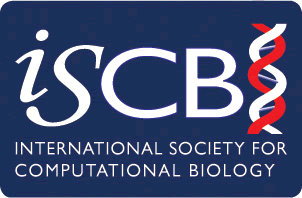
HOW TO BECOME COSI WITH A
COMPUTATIONASL BIOLOGIST - Join Us on Sunday, July 13, at ISMB to
learn more
| |||||||||||||||||||
| COSIs BEING LAUNCHED AT ISMB, BOSTON, JULY 2014 | |||||||||||||||||||
| 3D-SIG |
Structure-based drug discovery. Structure representation,
classification and prediction Structure-based function prediction. Docking - protein-protein, protein-ligand and protein-nucleic-acid. Protein dynamics; Structural Evolution; Macromolecular assemblies; Structural genomics |
||||||||||||||||||
|
Automated Function Prediction (AFP) |
The
mission of the Automated Function Prediction COSI is to
bring together computational biologists, experimental
biologists and biocurators who are dealing with the
important problem of gene and gene product function
prediction, to share ideas and create collaborations. |
||||||||||||||||||
|
sBioinfo-Core Bio-Ontologies |
Bioinfo-core is a worldwide body of
people that manage or staff bioinformatics cores within
organizations of all types. We provide a forum for
bioinformatics core managers and staff to discuss issues
pertaining to the operation of their core, evaluation of data analysis software tools, and management of relationships with the users of cores. |
||||||||||||||||||
| CAMDA |
CAMDA presents a crowd sourcing and open-ended data analysis challenge format which focuses on big heterogeneous data sets that are increasingly produced in several fields of the life sciences. | ||||||||||||||||||
|
Computational Biology Education (COBE) |
The ISCB Computational Biology Education (CoBE) COSI focuses on bioinformatics and computational biology education and training across the life sciences. A major goal of this COSI is to foster a mutually supportive, collaborative community in which bioscientists can share bioinformatics education and training resources and experiences, and facilitate the development of education programs, courses, curricula, etc., and teaching tools and methods. | ||||||||||||||||||
|
Computational Mass Spectrometry (COMP-MS) |
The ISCB CoSI CompMS is a joint initiative with the HUPO Computational Mass Spectrometry Initiative (HUPO CompMS). It promotes the efficient, high quality analysis of mass spectrometry data through dissemination and training in existing approaches and coordination of new, innovative approaches. The CompMS initiative aims to exploit synergies between different application domains, in particular proteomics and metabolomics. | ||||||||||||||||||
| Network
Biology |
As more research fields turn to network visualization and analysis for perspective, our Network Biology Community serves to introduce novel methods and tools, identify best practices and highlight the latest research in the growing and interconnected field of network biology | ||||||||||||||||||
| Open Bioinformatics Forum (OBF) | The Open Bioinformatics
Foundation or OBF is a non-profit, volunteer-run group dedicated to promoting the practice and philosophy of Open Source software development and Open Science within the biological research community. |
||||||||||||||||||
